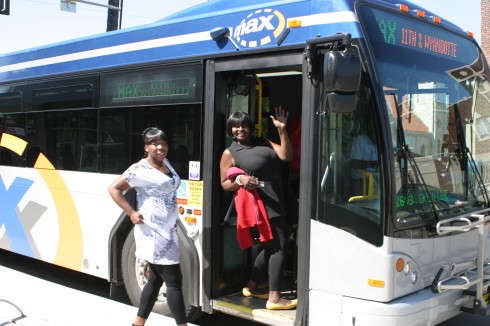Congress Makes Public Transit Commute Benefit Equal To Parking Benefit
(Kansas City, Mo. – Jan. 31, 2012) The Kansas City Area Transportation Authority (KCATA) and the American Public Transportation Association (APTA) laud Congress’ recent approval of the public transit commuter benefit. “This measure removes the financial bias against public transit commuters,” said KCATA General Manager Mark Huffer. “This has always been an issue of fairness, and public transit advocates are pleased that the federal tax code will again provide transit riders with the same tax benefits as those who drive to work.” Under the new “fiscal cliff” legislation passed by Congress this month, the parity between public transit and parking benefits are now up to $240 a month and are retroactive from Jan. 1, 2012. This includes monthly passes purchased through the Transit Riders’ Incentive Plan (TRIP). TRIP allows employers to provide discounted monthly passes to employees on a pre-tax basis. The company reduces its payroll tax, and employees enjoy the pre-tax savings. To learn more about TRIP, companies can call KCATA at (816) 346-0274 or email .(JavaScript must be enabled to view this email address). “On behalf of the millions of Americans who ride public transportation, I commend Congress for passing legislation to increase the public transit commuter benefit, and making it equal to the parking benefit. With parity between public transit and parking benefits, people have the ability to make the best reasonable transportation choice,” said APTA President and CEO Michael Melaniphy. This will expire on Dec. 31, 2013. APTA urged Congress to permanently extend the transit commuter tax benefit to the same level as the parking tax benefit. “It is our hope that in the new Congress, legislation will pass to make the public transit commuter benefit parity permanent,” said Melaniphy. The bill also extends through 2013, the alternative fuels tax credit refund that many public transit systems utilize to offset costs associated with using natural gas and other alternatively fueled vehicles.

